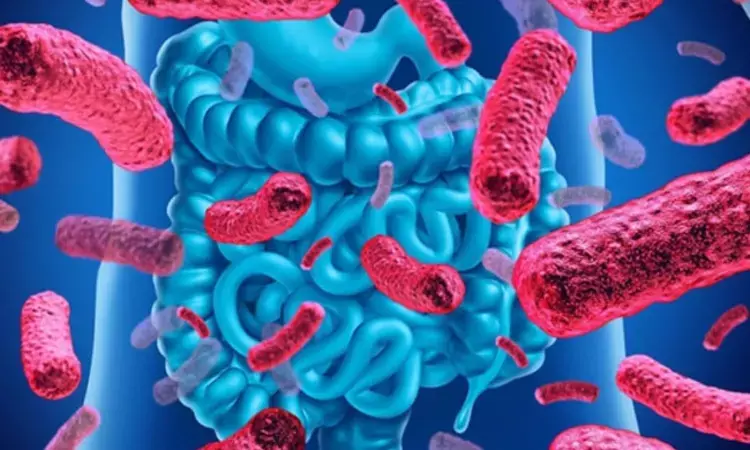- Home
- Medical news & Guidelines
- Anesthesiology
- Cardiology and CTVS
- Critical Care
- Dentistry
- Dermatology
- Diabetes and Endocrinology
- ENT
- Gastroenterology
- Medicine
- Nephrology
- Neurology
- Obstretics-Gynaecology
- Oncology
- Ophthalmology
- Orthopaedics
- Pediatrics-Neonatology
- Psychiatry
- Pulmonology
- Radiology
- Surgery
- Urology
- Laboratory Medicine
- Diet
- Nursing
- Paramedical
- Physiotherapy
- Health news
- Fact Check
- Bone Health Fact Check
- Brain Health Fact Check
- Cancer Related Fact Check
- Child Care Fact Check
- Dental and oral health fact check
- Diabetes and metabolic health fact check
- Diet and Nutrition Fact Check
- Eye and ENT Care Fact Check
- Fitness fact check
- Gut health fact check
- Heart health fact check
- Kidney health fact check
- Medical education fact check
- Men's health fact check
- Respiratory fact check
- Skin and hair care fact check
- Vaccine and Immunization fact check
- Women's health fact check
- AYUSH
- State News
- Andaman and Nicobar Islands
- Andhra Pradesh
- Arunachal Pradesh
- Assam
- Bihar
- Chandigarh
- Chattisgarh
- Dadra and Nagar Haveli
- Daman and Diu
- Delhi
- Goa
- Gujarat
- Haryana
- Himachal Pradesh
- Jammu & Kashmir
- Jharkhand
- Karnataka
- Kerala
- Ladakh
- Lakshadweep
- Madhya Pradesh
- Maharashtra
- Manipur
- Meghalaya
- Mizoram
- Nagaland
- Odisha
- Puducherry
- Punjab
- Rajasthan
- Sikkim
- Tamil Nadu
- Telangana
- Tripura
- Uttar Pradesh
- Uttrakhand
- West Bengal
- Medical Education
- Industry
Probiotics supplementation promising adjuvant therapy for patients with type 2 diabetes

China: A recent study published in the Journal of Translational Medicine has supported the favourable effects of probiotics supplementation in patients with type 2 diabetes mellitus (T2DM), implying it to be a promising adjuvant therapy for T2DM patients.
The systematic review and meta-analysis revealed that Bifidobacterium and food-type probiotics had higher glucose-lowering effects than other probiotic genera and vehicle types used for probiotic delivery. Probiotic intervention may be of more benefit for patients with a higher BMI concerning glycemic control.
Type 2 diabetes accounts for about 90% of all diabetes cases, leading to life-threatening and costly complications and reduced life expectancy. There exists no radical cure for T2DM, and its treatment relies on the use of anti-diabetic drugs for the long term. Therefore, exploring new methods that may effectively delay or even reverse T2DM progression is essential.
Recent research has demonstrated that gut microbiota plays a critical role in maintaining host homeostasis and the pathogenesis of T2DM. Probiotics are microbial dietary supplements that modify the gut microbiota. Some RCTs (randomized controlled trials) have investigated the effects of probiotics on glycemic control in patients with type 2 diabetes. However, evidence is inconsistent from clinical trials on the effects of probiotics supplementation on blood sugar control.
Against the above background, Su-Mei Xiao, Sun Yat-Sen University, Guangzhou, China, and colleagues aimed to evaluate the effectiveness of probiotics supplementation on glycaemic control in type 2 diabetes patients based on the data from the RCTs.
For this purpose, the researchers searched the online databases from inception to October 2022 and collected RCTs about probiotics and T2DM. The standardized mean difference (SMD) was used to estimate the effects of probiotics supplementation on parameters related to glycemic control, e.g. insulin, fasting blood glucose (FBG), homeostasis model of assessment of insulin resistance (HOMA-IR), and haemoglobin A1c (HbA1c). The study identified thirty RCTs comprising 1,827 T2MD patients.
The authors reported the following findings:
- Compared with the placebo group, the probiotics supplementation group had a significant decrease in the parameters of glycaemic control, including FBG (SMD = − 0.331), insulin (SMD = − 0.185), HbA1c (SMD = − 0.421), and HOMA-IR (SMD = − 0.224).
- Further subgroup analyses showed that the effect was more significant in the subgroups of Caucasians, high baseline body mass index (BMI ≥ 30.0 kg/m2), Bifidobacterium and food-type probiotics.
"The results revealed that probiotic supplementation significantly decreased insulin, FBG, and HbA1c levels and HOMA-IR scores in type 2 diabetes patients," the authors conclude.
Reference:
Li, G., Feng, H., Mao, XL. et al. The effects of probiotics supplementation on glycaemic control among adults with type 2 diabetes mellitus: a systematic review and meta-analysis of randomized clinical trials. J Transl Med 21, 442 (2023). https://doi.org/10.1186/s12967-023-04306-0
Dr Kamal Kant Kohli-MBBS, DTCD- a chest specialist with more than 30 years of practice and a flair for writing clinical articles, Dr Kamal Kant Kohli joined Medical Dialogues as a Chief Editor of Medical News. Besides writing articles, as an editor, he proofreads and verifies all the medical content published on Medical Dialogues including those coming from journals, studies,medical conferences,guidelines etc. Email: drkohli@medicaldialogues.in. Contact no. 011-43720751


